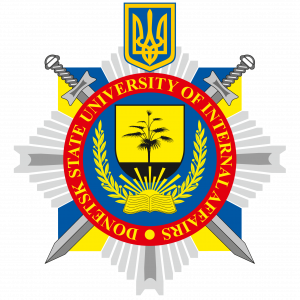For three days the Donetsk State University of Internal Affairs hosted representatives of the European Union Advisory Mission (EUAM). This visit became an important step in the development of cooperation, which opens up new horizons for joint projects in education and practical training, exchange of experience and identification of new areas of cooperation.
 The delegation consisted of 17 EUAM experts headed by Michal Vyvoda, Head of Investigation Unit International Crimes.
The delegation consisted of 17 EUAM experts headed by Michal Vyvoda, Head of Investigation Unit International Crimes.
 The University vice-rector Ruslan Vradii welcomed the guests on behalf of the DonSUIA Rector Serhii Vitvitskyi: «This visit is a confirmation of strong ties between the University and the European community. We are grateful for the support and cooperation that help us develop and move forward.»
The University vice-rector Ruslan Vradii welcomed the guests on behalf of the DonSUIA Rector Serhii Vitvitskyi: «This visit is a confirmation of strong ties between the University and the European community. We are grateful for the support and cooperation that help us develop and move forward.»
EUAM experts conducted a three-day training on relevant topics for the academic staff, cadets and students of DonSUIA, as well as practical staff of the Main Office of the National Police in the Kirovohrad region. In total, 750 participants joined the event.

 The training was organized by a team of experts, including Vincent Haughney, Senior Advisor on Investigation of International Crimes, and Dmytro Omelchenko, EUAM Ukraine’s Legal Adviser. They coordinated the event and engaged international and national experts.
The training was organized by a team of experts, including Vincent Haughney, Senior Advisor on Investigation of International Crimes, and Dmytro Omelchenko, EUAM Ukraine’s Legal Adviser. They coordinated the event and engaged international and national experts.
Michal Vyvoda, Head of the International Crimes Investigation Unit, and Denis Peftiev, an expert on operational response of the National Police of Ukraine, organized a practical training on the use of open sources of information in criminal proceedings (OSINT). The participants learned about the methods of collecting and analyzing the data necessary for the investigation of war crimes, as well as reviewed case studies illustrating real-life situations.

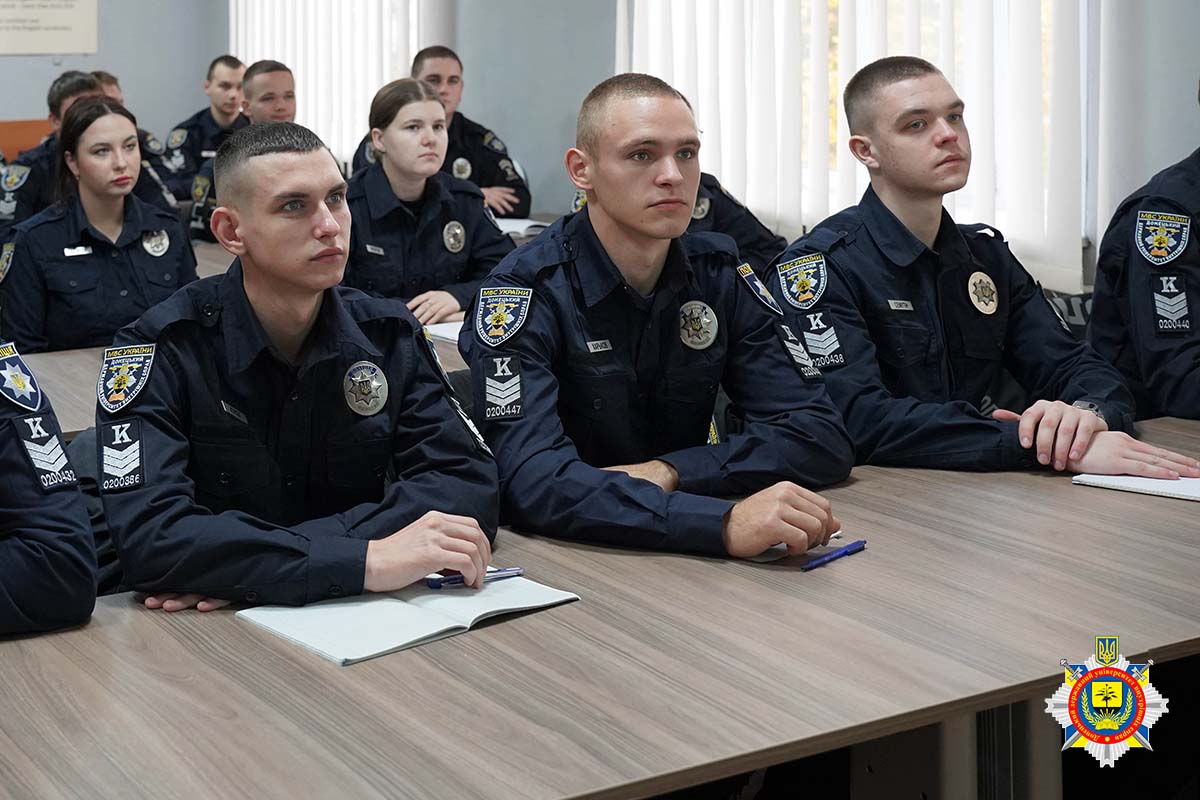 Vincent Haughney and Gary Corrigan, Senior Advisors on Investigation of International Crimes, conducted a discussion on interviewing victims and witnesses. The experts emphasized that the quality of the evidence collected directly depends on the correctness of conducting surveys. They reviewed in detail various interviewing techniques, including: how to establish a trusting relationship with victims; how to formulate questions to avoid inducing witnesses; how to ensure the accuracy and completeness of the information obtained.
Vincent Haughney and Gary Corrigan, Senior Advisors on Investigation of International Crimes, conducted a discussion on interviewing victims and witnesses. The experts emphasized that the quality of the evidence collected directly depends on the correctness of conducting surveys. They reviewed in detail various interviewing techniques, including: how to establish a trusting relationship with victims; how to formulate questions to avoid inducing witnesses; how to ensure the accuracy and completeness of the information obtained.
Andres Lopez, General Policing Advisor, and Pedro Pinto, Senior Advisor on General Policing, conducted a training on stabilization measures and public order. They shared best practices and tools to help maintain law and order in crisis situations.
Bostjan Trsan, Senior advisor on Criminal analysis IC Unit, conducted a class on criminal analysis. The participants learned how to identify and analyze criminal schemes.

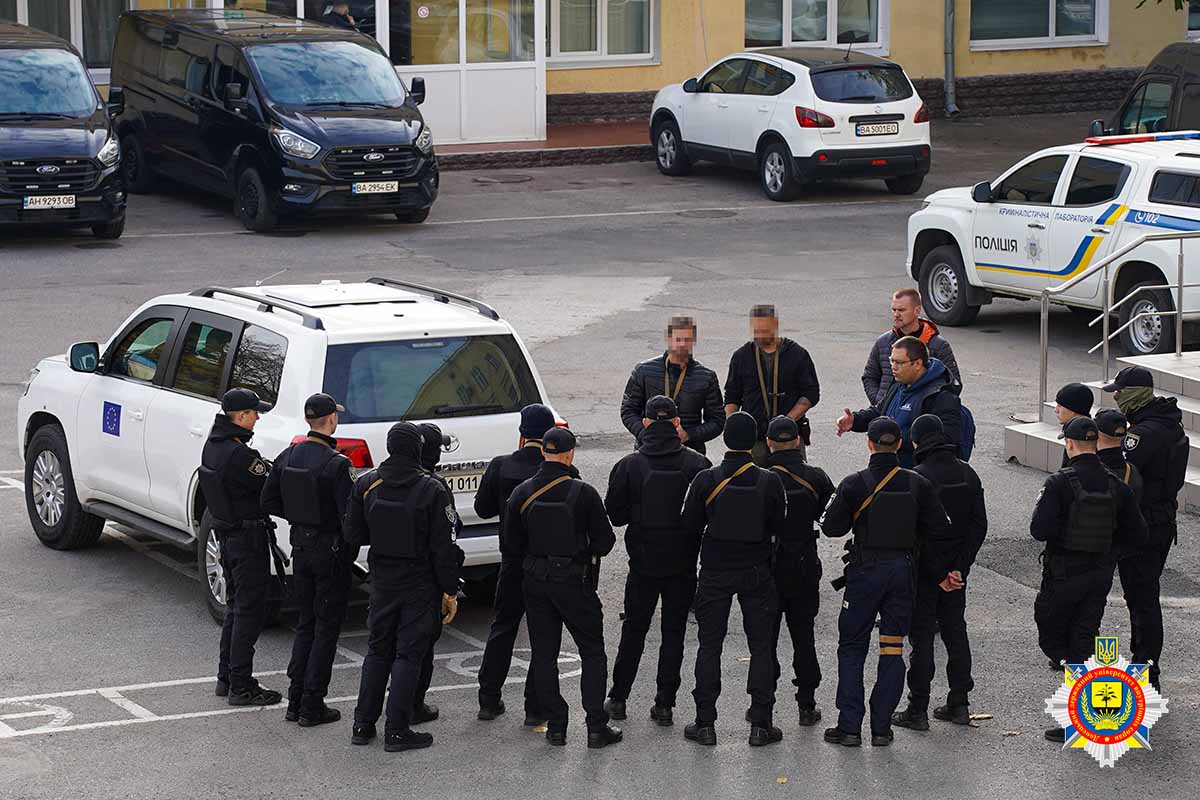
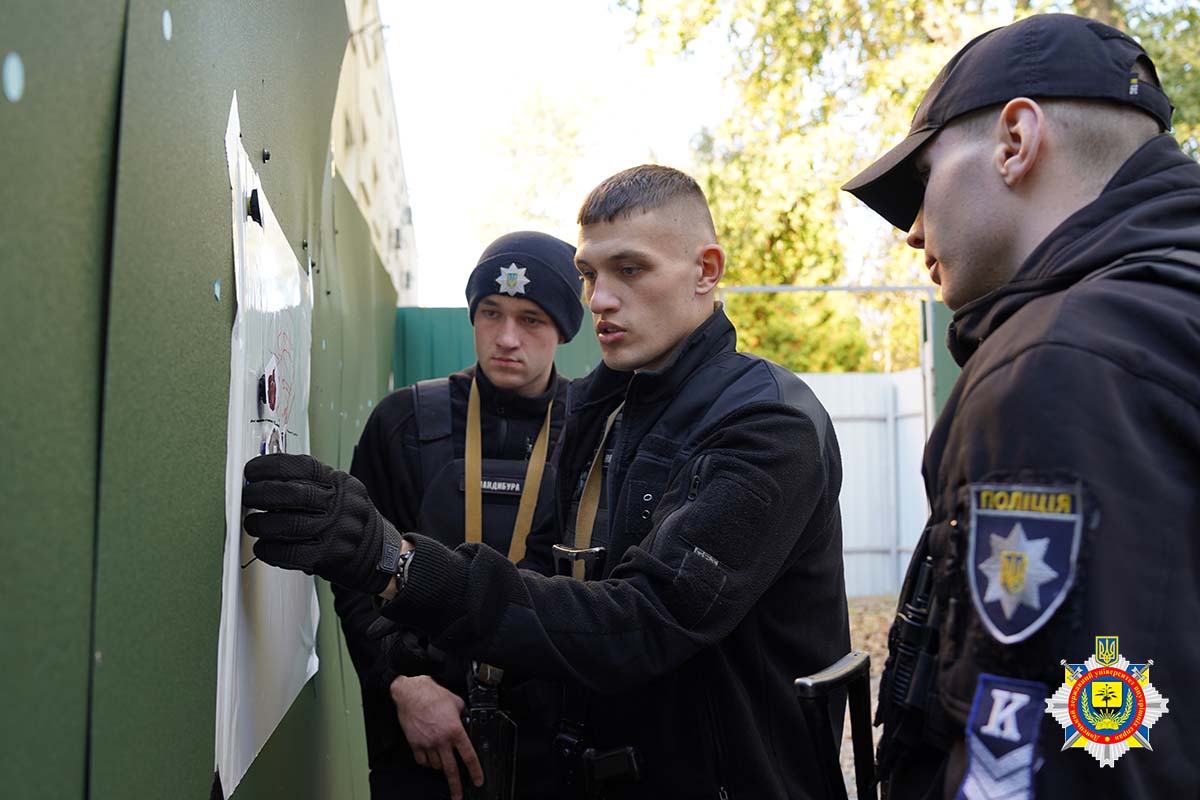
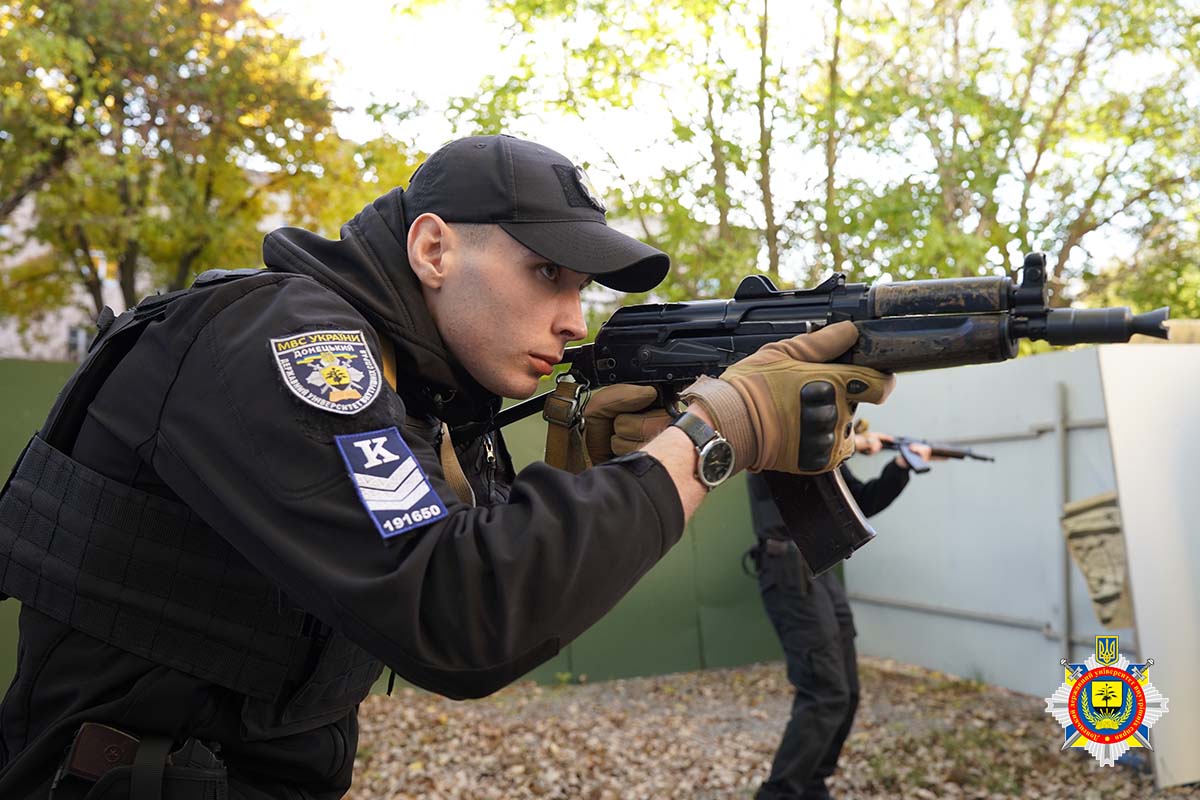
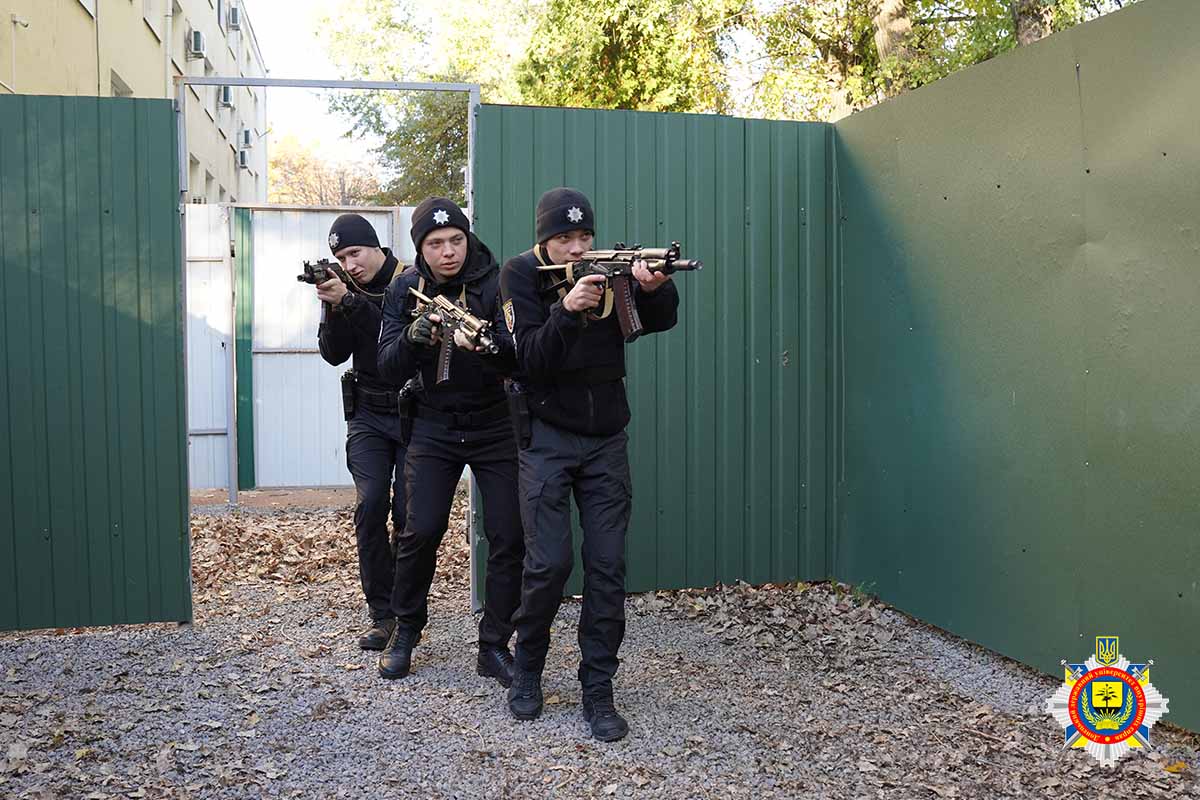 Volodymyr Kucherov, an Independent combat medical expert, conducted a training on tactical medicine. The participants mastered modern methods of first aid to act effectively in high-risk conditions and save the lives of colleagues and civilians. This knowledge is especially relevant for law enforcement officers, who are among the first to come to aid victims in emergencies.
Volodymyr Kucherov, an Independent combat medical expert, conducted a training on tactical medicine. The participants mastered modern methods of first aid to act effectively in high-risk conditions and save the lives of colleagues and civilians. This knowledge is especially relevant for law enforcement officers, who are among the first to come to aid victims in emergencies.
The Mission Security Assistants Renee Zwettler and Mike Heuvel had been working with cadets during a three-day intensive tactical training course to develop practical skills to ensure safety during operations.
The issues of shelling, trajectory and weapons were discussed by Senior Advisor on Forensics IC Unit Marko Muhonen, Senior Advisor on Complex Crime scene analysis Christelle Buton, Senior advisor on Prosecution of International Crimes (Online) Mark Roorda. They taught how to record the effects of shelling and use unmanned aerial vehicles (UAVs) to collect information and take samples for DNA analysis.
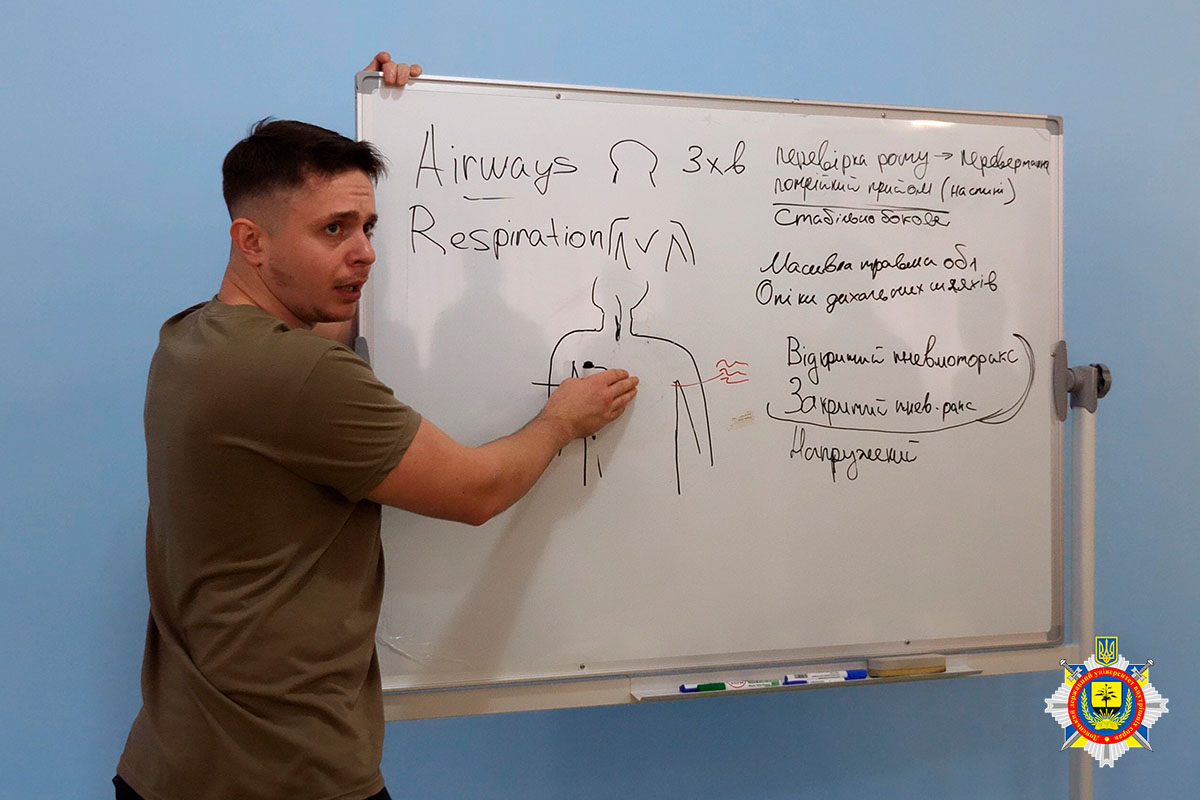
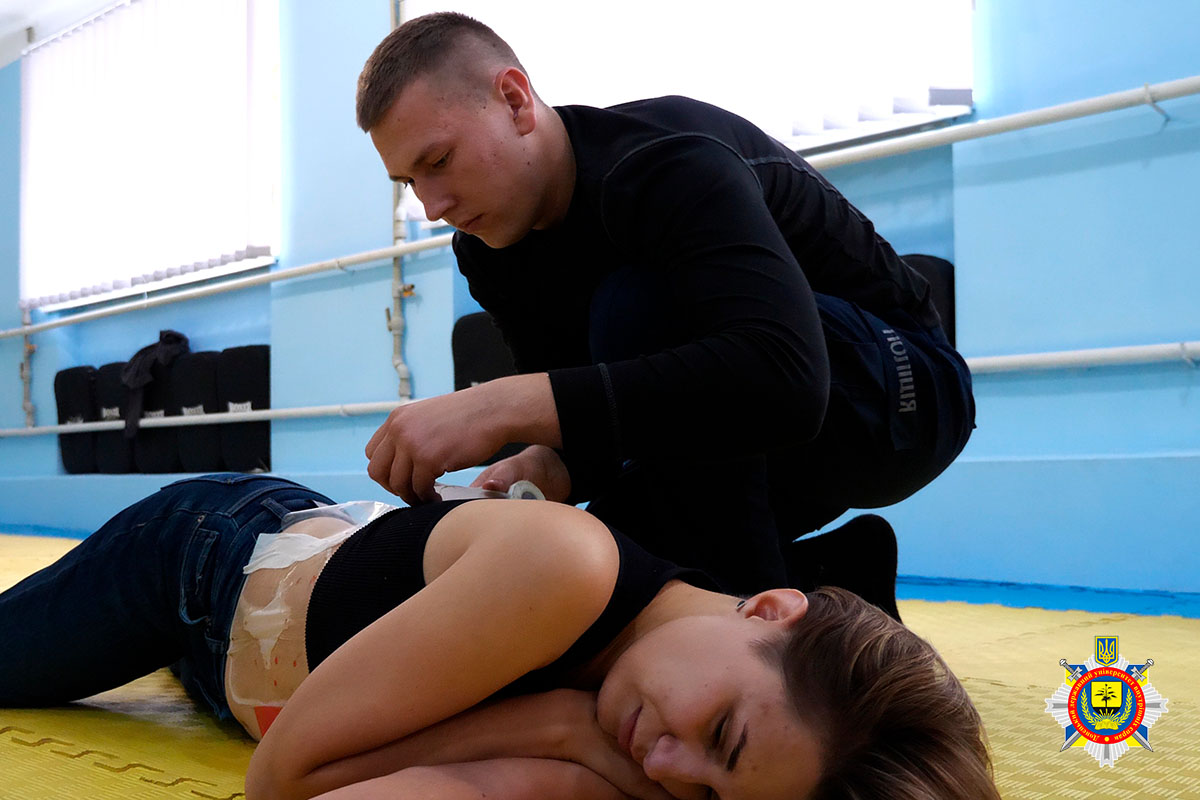 Senior Advisor on Legal reform Satu Seppaenen conducted a mediation training, teaching the participants conflict settlement techniques.
Senior Advisor on Legal reform Satu Seppaenen conducted a mediation training, teaching the participants conflict settlement techniques.
Pauline Brosch, Senior Advisor on Investigation CRSV, spoke about conflict prevention strategies and approaches to preventing violations.
Ola Quarnstrom, Senior Advisor on Victims’ Rights, discussed the issue of working with vulnerable victims and witnesses, emphasizing the importance of psychological support and a sensitive approach when police officers work with vulnerable groups.
Advisor on Criminal Investigations Desiree Hufnagl drew attention to the psychological aspects of working at crime scenes. She emphasized the importance of maintaining objectivity and impartiality during investigative actions, as well as the need to provide psychological support to members of the investigative team, especially when investigating complex and high-profile crimes. Ms. Desiree shared her experience of working in difficult situations and provided practical recommendations on how to maintain the psychological health of investigators.
 The Donetsk State University of Internal Affairs is grateful to the European Union Advisory Mission for organizing and facilitating the training.
The Donetsk State University of Internal Affairs is grateful to the European Union Advisory Mission for organizing and facilitating the training.


